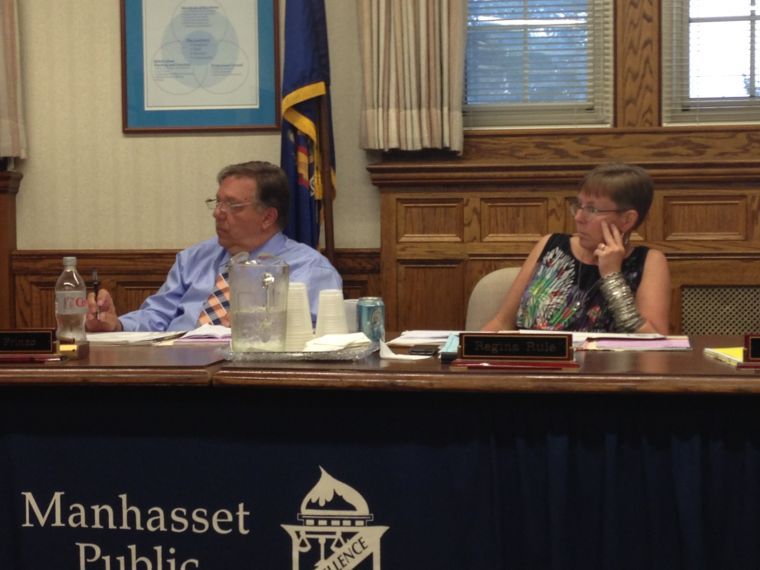The Manhasset Board of Education on Thursday formally adopted the $86 million budget for the 2013-14 school year that had been passed days earlier by voters, but its trustees expressed concerns about future budget votes and analyzed voter perceptions as the process came to a close for the year.
“There’s a whole generation of people now who know that they have to care, they have to participate in the process,” board Vice President Regina Rule said.
The district’s $89 million budget up for vote on May 21 failed to get a 60 percent supermajority – garnering 53.3 percent of the voter – and forced the board of education to make cuts to teachers, extracurricular activities and even some academic programs to decrease the budget and the tax cap-busting 5.98 percent tax levy increase.
“When you have a vote that comes out to 53 percent, that’s really a typical vote for our community,” Trustee Patricia Aiken said.
The board decreased its tax levy increase to 1.98 percent, though still exceeding the district’s .14 percent tax levy allowable limit, and Rule acknowledged that there is a lack of understanding that the so-called 2 percent tax cap mandated by the state is not necessarily a 2 percent cap for each district.
“One of the questions I’ve got in coming out of this is, did the community support 2 percent or did the community support that we were closer to the tax cap?” Rule said. “If our allowable cap was 3.5 percent, would the community have supported it? That’s going to be an interesting thing to discern.”
Manhasset Superintendent of Schools Charles Cardillo said a “handful” of school district budgets had decreased across Long Island, but added that those districts may not have been in the financial situation in which Manhasset found itself, bound by a .14 percent allowable levy limit passed along from officials in Albany in a year where many districts had allowable levy limits near 3 percent.
“My problem is that we have now disconnected education and funding,” board President Carlo Prinzo said. “They’re two separate things, and the thing that’s driving up Manhasset right now is funding. Two percent? Three percent? What sounds like a good number to me?”
Manhasset’s allowable levy limit was so low this year because it had refinanced $1.4 million of its debit in past years while only increasing spending by about 2 percent each year.
Assistant Superintendent of Business Rosemary Johnson has said that the state’s tax cap legislation enacted in 2011, and the formula that helps determine a district’s allowable levy limit, is meant to reward a district that spends and hurt a district that does not.
Prinzo said the tax cap legislation was an effort made by state education officials to “homogenize education,” a process by which they would arbitrarily “consolidate school districts” that struggled to stay afloat financially despite the quality of their academic or extracurricular programs, and expressed concern that Manhasset may face similar complications in passing its budget in the future.
“At a place where educational excellence is ours, we think, they’re taking it away from us and I don’t think it’s ours anymore, and that disturbs me,” Prinzo said.



